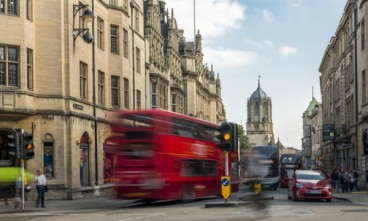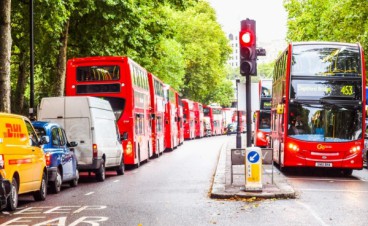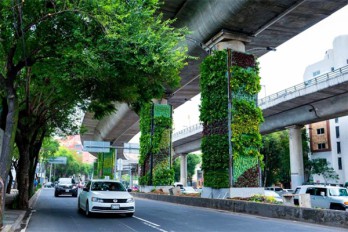European cities lead the way to sustainable transport

Oslo, London and Amsterdam are closer to achieving completely green transport
Oslo, London and Amsterdam are closer to achieving completely green transport
Air quality in the cities is one of the factors determining the well-being of their residents, so sustainable urban mobility –especially in mega cities-, remains a challenge. In the ‘Urban Mobility Index Report' by the London-based Centre for Economics and Business Research (CEBR), 35 cities from across the world are ranked based on their level of progress towards achieving a zero emissions transportation system.
According to the report, Oslo, London and Amsterdam are leading the race, with the Norwegian capital having set the year 2030 as the latest to reach this goal. The city’s metro, trams and buses already run largely on hydro-electricity and the country has the highest percentage of electric cars globally (they made up almost 11% of the traffic passing toll booths into Oslo in January, up from 7% in all of 2016). Although it is stated in the report that London “may not seem an example of a green city to all residents’’, it ranked in second place. The fact that Londoners mostly prefer public transport to private, the comparatively low air pollution levels and the fact that green space covers a third of the city are some of the reasons behind this result. London also aims to cut greenhouse gas emissions by 60% from 1990 levels by 2025 and has promoted electric cars and bike-sharing, says the report. Amsterdam, which came in third, has largely promoted cycling in an effort to cut emissions, and considers expanding its low emission zone measure. Furthermore, the government plans on operating only zero emission buses by 2026 and offers generous subsidies for the purchase of electric vehicles, which make up for around 10% of all new vehicle purchases.
European cities filled the top ten positions, together with Tokyo and Seoul, and Asian cities –although frequently facing environmental issues- seem very promising in their approach to a zero emissions future, with a desire to create smart cities filled with electric vehicles and public transport.
The bottom of the list is populated with cities in Africa and South America, where due to low economic development, zero emissions initiatives are not a priority. Cairo ranked last in the report, just below Nairobi, Mumbai, Istanbul and Abu Dhabi, however the last one has huge ambitions and willingness to invest in a greener future, meaning that the Gulf city could rush up the index in the coming years.
Source: Euractiv.com
Source: Euractiv.com
Want to read more like this story?

Oxford intends to introduce the world’s first Zero Emission Zone by 2035
Oct, 20, 2017 | NewsThe measures come as a response to the high levels of NO2 in the city’s center The measures c...

UK’s decarbonized transport project initiates
Apr, 13, 2020 | NewsThe United Kingdom Department for Transport (DfT) has developed a thorough plan to completely d...

Congestion pricing: A new strategy to alleviate traffic
Aug, 12, 2019 | NewsAccording to a new report issued by the National League of Cities (NLC), an advocacy organ...

Cities to live in to escape climate change
Nov, 11, 2016 | NewsA list of the most climate change-adaptive cities in North America A list of the most climate cha...

Pioneering Sustainable Buildings: How Amsterdam, Stockholm, and Nantes Lead the Way"
Jul, 26, 2024 | NewsDecarbonising the Building Sector: A Vital Step Towards Climate Neutrality The European Union has...

New York City major to ban glass skyscrapers with high greenhouse emissions
Apr, 25, 2019 | NewsBill de Blasio, New York City major, has decided to ban the erection of energy inefficient glass sky...

Paris Limits Driving to Curb Air Pollution
Mar, 23, 2015 | NewsAfter a major spike in air pollution earlier this week, Paris city mayor Anne Hidalgo asked authorit...

SURE Unveils Endless City Plans for London
Aug, 29, 2014 | NewsSURE Architecture unveiled plans this week for a futuristic skyscraper that could house thousands of...

The 'urban heat island' effect could force several major cities to face climate change costs at least twice as big as the rest of the world
Oct, 10, 2017 | NewsSome of the world’s largest cities could face temperatures up to 8°C higher than those of...
Trending

Vertical gardens in Mexico City to combat pollution

Saudi Park Closed After 360 Big Pendulum Ride Crashes to Ground, 23 injured

Characteristics of Load Bearing Masonry Construction

Taipei 101’s impressive tuned mass damper

Dutch greenhouses have revolutionized modern farming

Federal court rules Biden’s offshore drilling ban unlawful


